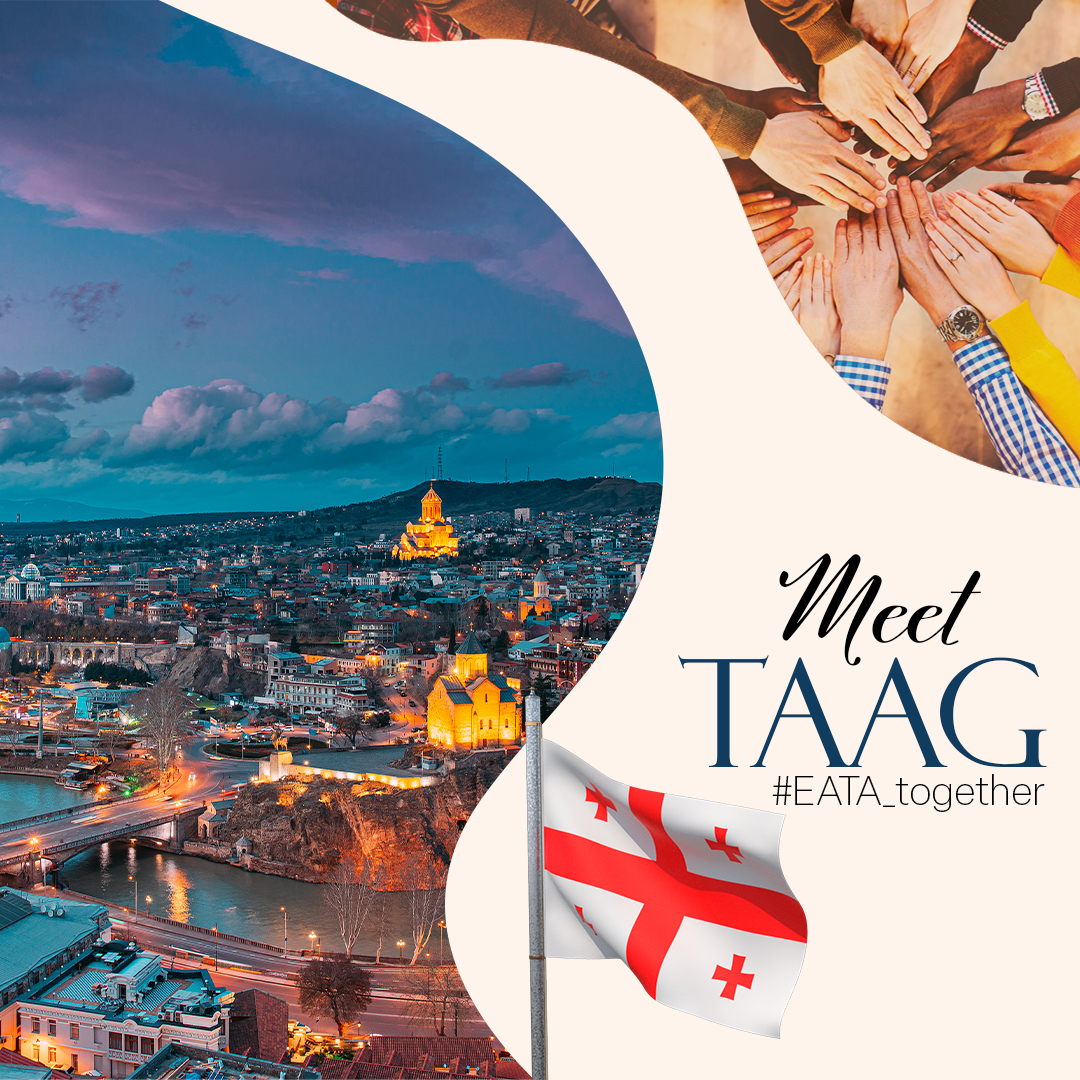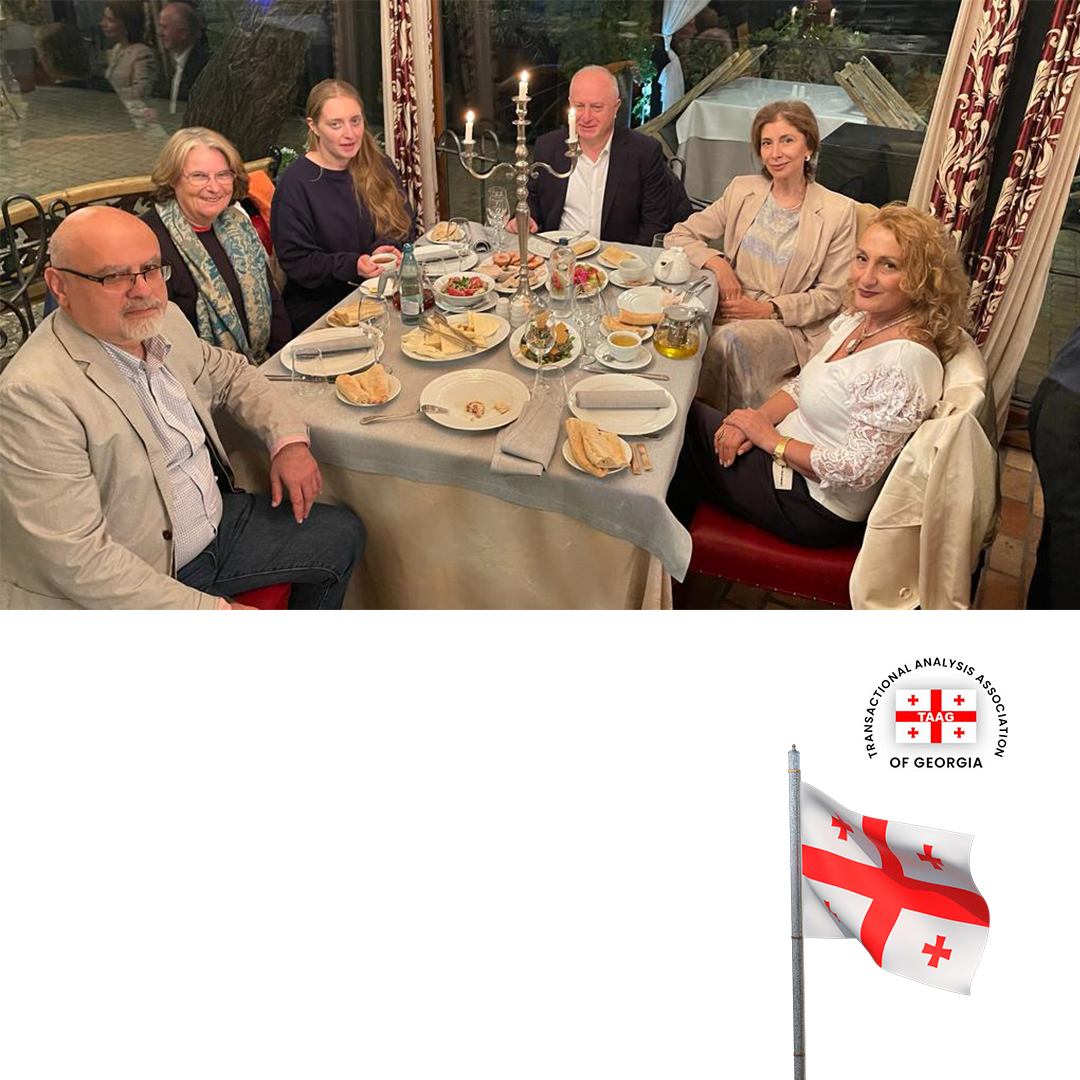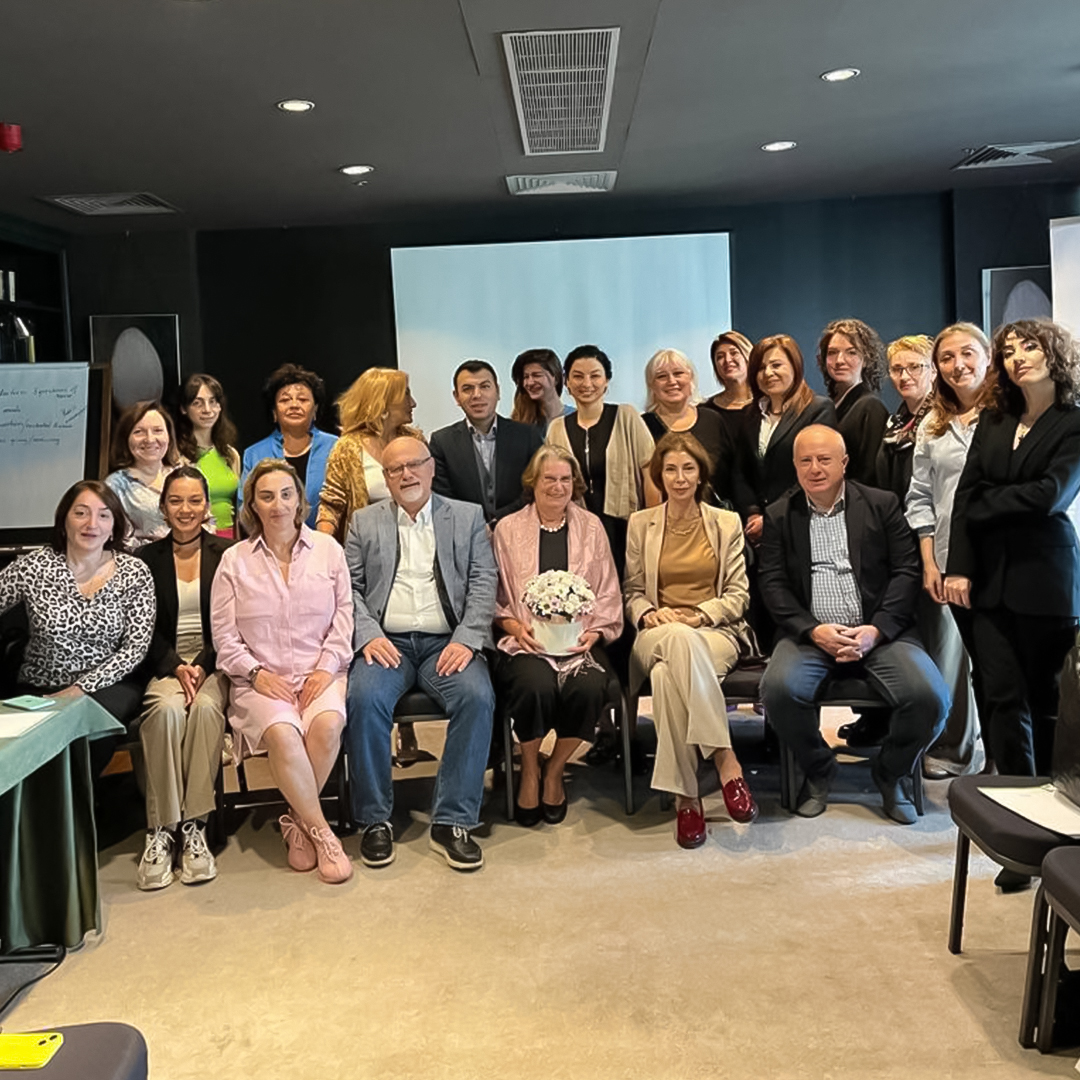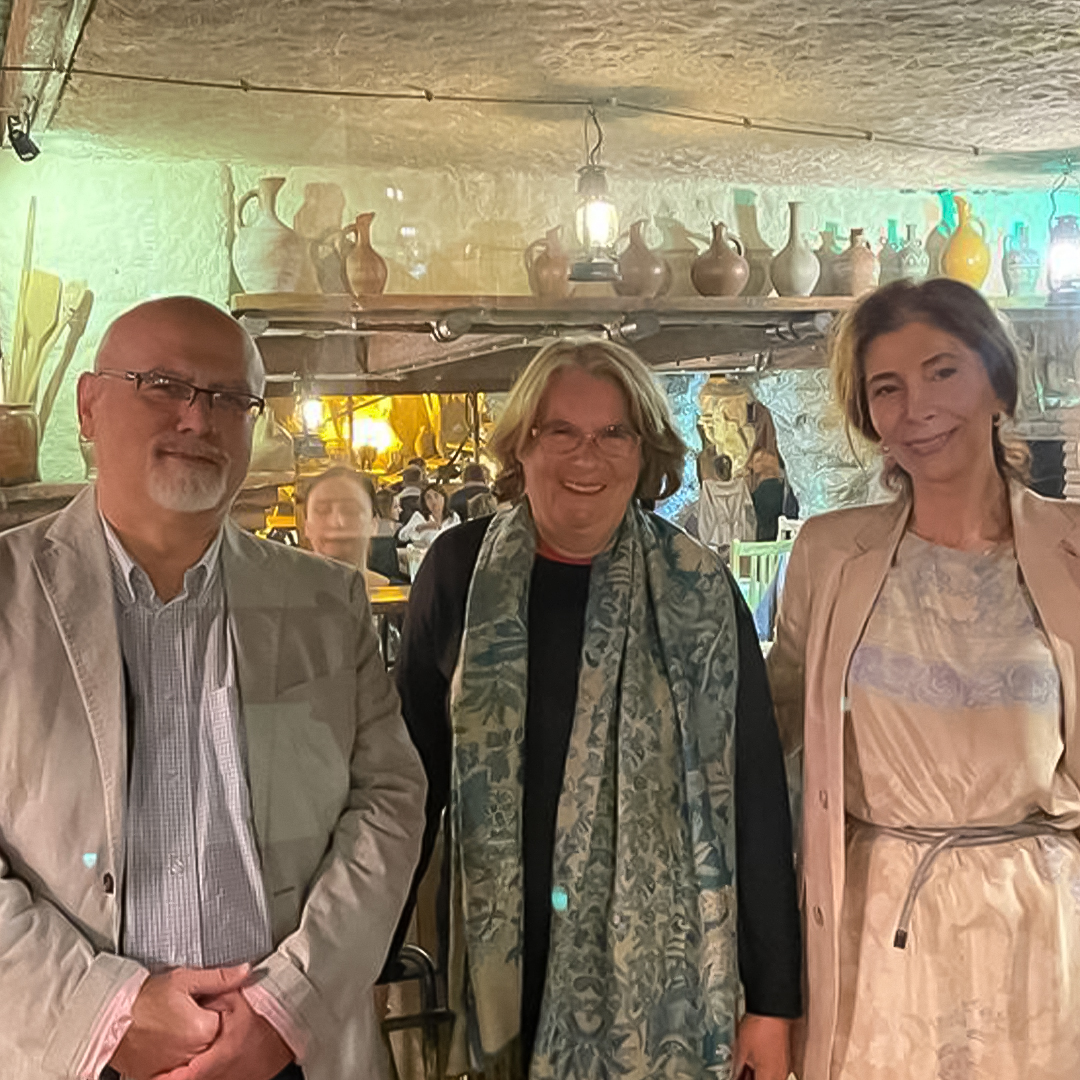გამარჯობა – Gamarjoba (Hello) from Georgia!
We are Georgians, and therefore we are Europeans!
Let us introduce TAAG – the Transactional Analysis Association of Georgia. TAAG was established in December 2020, in a difficult time when Covid-19 raged all over the world. It is a professional non-profit organization consisting of the people who have shared an interest in Transactional Analysis as a theoretical model and its development in various fields of application.
Our association is the youngest association in EATA. An important milestone for us was the year 2022, when we joined EATA.
Even though the Georgian association has been established not long ago, some activities have already been organized by us, which we can be rightly proud of:
TA101 course (online) led by Julie Hey (TSTA-P/O/E/C);
TA101 course (offline) led by Sylvia Schachner (TSTA-E);
Masterclass (online) “TA in Organization, Coaching and Mediation” led by Thorsten Geck (TSTA-O).
And now we are going to organize a “Role Theory” training (concerning an application TA in organizations) by Thorsten Geck (TSTA-O)
Our association currently unites 30 members, all of them completed the TA101 course.
We have great willingness to attain more TA knowledge and firmly believe that membership of EATA will be useful for further development of TA in Georgia.
Here are some facts about my country – Georgia:
The Georgian language is one of the most unique languages in the world and boasts its own alphabet.
Georgia has a literary tradition that dates to the 5th century CE. The national genius was demonstrated most clearly in Vepkhis-tqaosani (The Knight in the Panther’s Skin), the epic masterpiece of the 12th-century poet Shota Rustaveli.
Georgia is known for its tradition of polyphonic singing, a practice that was put on the UNESCO Intangible Cultural Heritage of Humanity list in 2008. A recording of Chakrulo, a Georgian folk song, was sent into space on the Voyager spacecraft.
There are three Georgian cultural sites listed on UNESCO’s World Heritage list: the ancient city and former capital, Mtskheta, Gelati Monastery and the mountainous region of Upper Svaneti.
Georgia has been producing wine for 8,000 years and is considered as the birthplace of winemaking. UNESCO has listed the traditional Georgian winemaking method – through the use of qvevri (large earthenware vessels) – on its Intangible Cultural Heritage of Humanity list.
We are passing the baton to Montenegro!




Visit our web
Website co-created by Maurits Baeyens, Bruno Gallier and XGalvany
